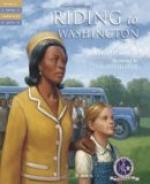Time gradually assuaged the first horror of the tragedy which Job had witnessed, but it failed to bring him peace of mind. Fear of death, which up to the moment of the tragedy at the forge had never given him an uneasy moment, now entered into possession of his mind and haunted him awake or asleep. His work at the forge, once a joy to him, was now an unbroken agony. He saw death lying in wait for him every time he climbed a ladder or lifted a crowbar. Nor could he wholly escape from the terror in what had always seemed to him the security of his home. The howling of the wind in the chimney, the muttering of a distant thunderstorm, even the sight of his razor on the dressing-table, were enough to arouse the morbid fear and strike terror to his heart.
He said little of the agony that he suffered, but it was written plainly in his eyes, in his ashen face and in the trembling of his hand. I did my best to induce him to speak his mind to me, but with poor success. One Sunday evening, however, when I found him and his wife seated by themselves over the fire, I found him more communicative, and I realised that what he dreaded most of all in the thought of death was loss of personality. Of the unelect Calvinist’s fear of hell he knew nothing. What troubled him was, rather, dissatisfaction with heaven. Job was not much of a theologian, though he attended chapel regularly of a Sunday evening. His ideas of heaven were drawn mainly from certain popular hymns, which depicted the life of the redeemed as a perpetual practice of psalmody.
“What sud I be doin’ i’ heaven,” he asked, “wi’ a crown o’ gowd on my heead and nowt to do all day but twang a harp, just as if I were one o’ them lads i’ t’ band? What mak o’ life’s yon for a chap like me, that’s allus bin used to tug an’ tew for his livin’!”
“Nay, Job,” his wife replied, “but thou’ll be fain o’ a bit o’ rest when thy turn cooms. It’s a place o’ rest, that’s what heaven is; thou’ll noan be wanted to play on t’ harp without thou’s a mind to.”
“I can’t sit idle like thee, Mary,” Job answered. “I mun allus be doin’ summat. If it isn’t Steel Works, it’s fox-huntin’; and if it isn’t fox-huntin’ it’s fettlin’ up t’ henhouse, or doin’ a bit o’ wark wi’ my shool i’ t’ tatie-patch.”
“Thou’ll happen change thy mind when thou’s a bit owder,” was Mary Hesketh’s answer to this. “When I’m ower thrang wi’ wark on a washin’-day, I just set misen down on t’ chair and think o’ t’ rest o’ heaven, an’ I say ower to misen yon lines that I larnt frae my muther:




